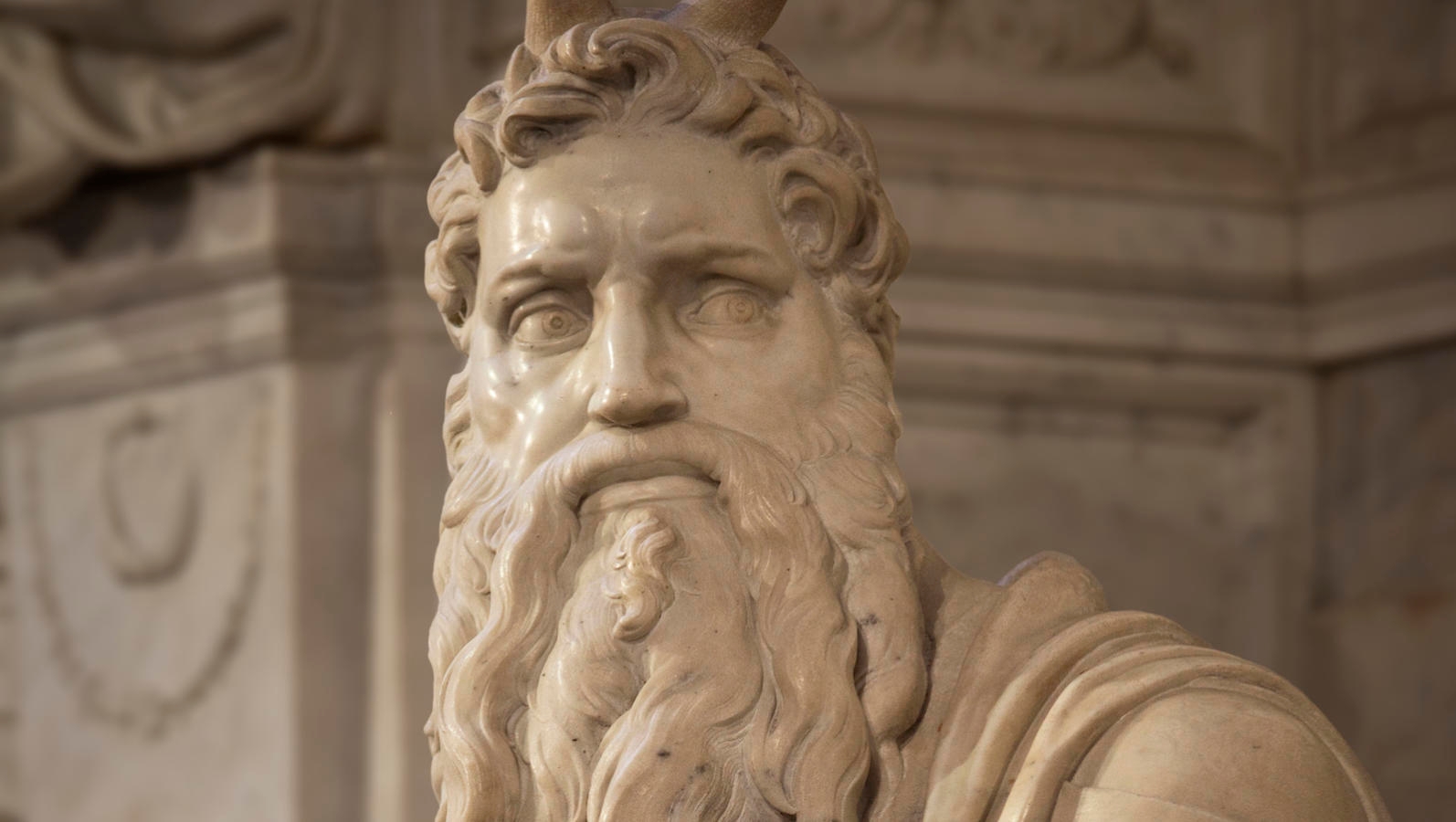Commentary on Parashat Ha'Azinu, Deuteronomy 32:1-52
The opening words of Parashat Ha’Azinu, the second to last portion of the Torah, implore us to listen. What follows is a 70-line song Moses delivers to the people of Israel on the last day of his life.
Moses begins by invoking the Heavens and the Earth to bear witness as he reminds the people how God protected them during their wandering in the wilderness. Nonetheless, they rebelled and spurned God, causing God to become angry, jealous and hidden. Moses implores the people to follow the teachings of the Torah, which if done, will ultimately lead to reconciliation with God.
Ha’Azinu concludes with God instructing Moses to ascend Mount Nebo in order to view the Promised Land from a distance, as he will not be allowed to enter it. It is there, on Mount Nebo, that Moses will die.
Before we are told of Moses’ impending death, we read a puzzling verse in Deuteronomy 32:39:
With your help, My Jewish Learning can provide endless opportunities for learning, connection and discovery.
See, then, that I, I am the One;
There is no god beside Me.
I deal death and give life;
I wounded and I will heal:
None can deliver from My hand.
What does it mean that God deals death and gives life, wounds and heals? What do these words say about the nature of God?
Many rabbinic commentators believe that this passage indicates a belief in a future world beyond death. The Talmud notes that the second part of the verse should be unnecessary. If God gives life to the dead, then surely God can also heal those who are wounded. What does the second part of the verse add? The Talmud answers: “Rather, the second clause clarifies the first one: The Holy One, Blessed be He, said: Those whom I put to death I will bring to life, just as those whom I wounded I will heal.”
According to this reading, the verse is not meant to suggest that God deals death to some and gives life to others. Rather, God does both for the same person. From this we learn that God does not desert us in our grief, but is there to help us heal. As mourners, we may feel like we may never feel real joy again, that our wounds will prevent us from ever feeling whole. But as the psalmist wrote, “Those who sow in tears, will reap in songs of joy.” The God who deals death also gives life and will eventually bring us back to life.
Centuries later, Maimonides offered some practical advice as to how we can move, with God’s help, from death to life. In helpful formula in a medical treatise entitled “A Useful Elixir for Confidence” Maimonides integrates both his medical and spiritual knowledge into a formula that draws on God’s role in healing:
Take the roots of praise, and thanks, and the stems of joy and security. Remove from them the seeds of distress and worry. Take the flowers of knowledge and understanding, and the roots of patience and contentment, and beat all of them with the pestle of meekness. Cook all in a vessel of humility, and knead with sweet words. Steep the mixture in the waters of charm and mercy, and give a person suffering from the disease of despair two measures a day, morning, and evening, along with three measures of logic in moderation. Refine out all of the impurities of anger and severity. Mix with the essence of acceptance of the will of God, may He be blessed, the Lord of praise, and adoration, and serve in a utensil of the praise of the Lord of all. The patient will soon rest comfortably and improve. Maimonides then concludes: “one who practices these qualities will heal himself and his soul, and will succeed in all his ways and his deeds.
Cited in Iturei Torah by Aharon Yaakov Greenberg
Coming back to life after having experienced a death is not easy, but if we are able to utilize the wisdom of Maimonides and integrate praise, thanks, joy, security, understanding, patience, contentment, humility, logic and acceptance into our grief journeys, then perhaps, we, with God’s help, will begin to heal ourselves and our souls.
This article initially appeared in My Jewish Learning’s Reading Torah Through Grief newsletter on September 22nd, 2023. To sign up to receive this newsletter each week in your inbox, click here.
Looking for a way to say Mourner’s Kaddish in a minyan? My Jewish Learning’s daily online minyan gives mourners and others an opportunity to say Kaddish in community and learn from leading rabbis.



